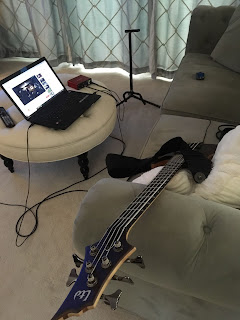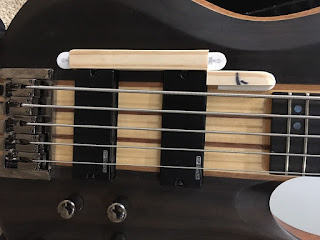I am a bassist. I approach music and writing from a completely different perspective than that of a guitarist. I don’t hear, process, or engage the same way as a guitarist. I didn’t pick this instrument because I thought it would be easy – I chose it because I understood what it was about.
Being a bassist isn’t always about playing the root note of what the guitarist is playing. I am not an octave pedal in a bipedal position. My job is to weave a connective thread between the melody the lead guitarist is playing and making it fit with the emotion and language of the singer. It is about building a foundation with the drums and the rhythm guitarist juxtaposed against the free-spirited soarings of the lead singer and lead guitarist.
I am called to tie everything together without being
noticed. I can thunder the lows and play
melodic runs. I can create dissonance
and tension and then provide the resolution.
If I do my job without drawing attention to myself I have done it
well. You may not notice me when I play
but you sure know something is missing when I don’t.
If all you want is someone to play one finger root-notes,
then you don’t want me - for I am a bassist. What you seek is a frustrated
rhythm guitarist, snubbed from his desired position, who will play your
one-finger root notes with all the enthusiasm of Ebeneezer Scrooge in a Forever
21 store.











